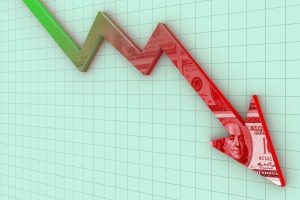14130533_1730968997170401_587473163_n

What is a recession
A recession is an economic phenomenon characterized by a significant decline in economic activity over a sustained period of time. It is typically marked by a contraction in gross domestic product (GDP), rising unemployment rates, reduced consumer spending, and a general decline in business activity. A recession is considered a normal part of the business cycle, which consists of alternating periods of economic expansion and contraction.
During a recession, several key indicators provide insights into the state of the economy. One of the primary indicators is GDP, which measures the total value of all goods and services produced within a country. In a recession, GDP growth becomes negative, indicating a decline in economic output. This can be caused by various factors, such as a decrease in consumer demand, reduced business investment, or a drop in exports.
Unemployment rates also tend to rise during a recession as businesses cut back on production and lay off workers to reduce costs. Higher unemployment levels lead to decreased consumer spending power, as individuals have less disposable income. This, in turn, can further dampen economic activity and perpetuate the recessionary cycle.
Consumer spending, a significant driver of economic growth, typically decreases during a recession. Consumers become more cautious about their spending habits, prioritizing essential goods and services and cutting back on discretionary purchases. As a result, businesses experience reduced revenues, leading to lower profits and potentially leading to layoffs or closures.
Business activity across various sectors also declines during a recession. Industries such as construction, manufacturing, and retail are particularly vulnerable, as they are heavily dependent on consumer demand. During a recession, businesses may delay investment projects, reduce production, or even shut down operations temporarily or permanently.
Governments and central banks often implement measures to mitigate the impact of a recession and stimulate economic recovery. These measures may include fiscal policies like tax cuts or increased government spending on infrastructure projects, as well as monetary policies such as reducing interest rates or implementing quantitative easing.
Recessions can have far-reaching effects on individuals, businesses, and society as a whole. They can lead to increased financial hardship, job losses, and decreased living standards for many people. Moreover, recessions can exacerbate existing social and economic inequalities, as the most vulnerable groups tend to be disproportionately affected.
Understanding the causes and dynamics of recessions is crucial for policymakers, economists, and individuals alike. By recognizing the signs and implementing appropriate measures, it is possible to mitigate the negative effects of recessions and promote a more stable and resilient economy.







